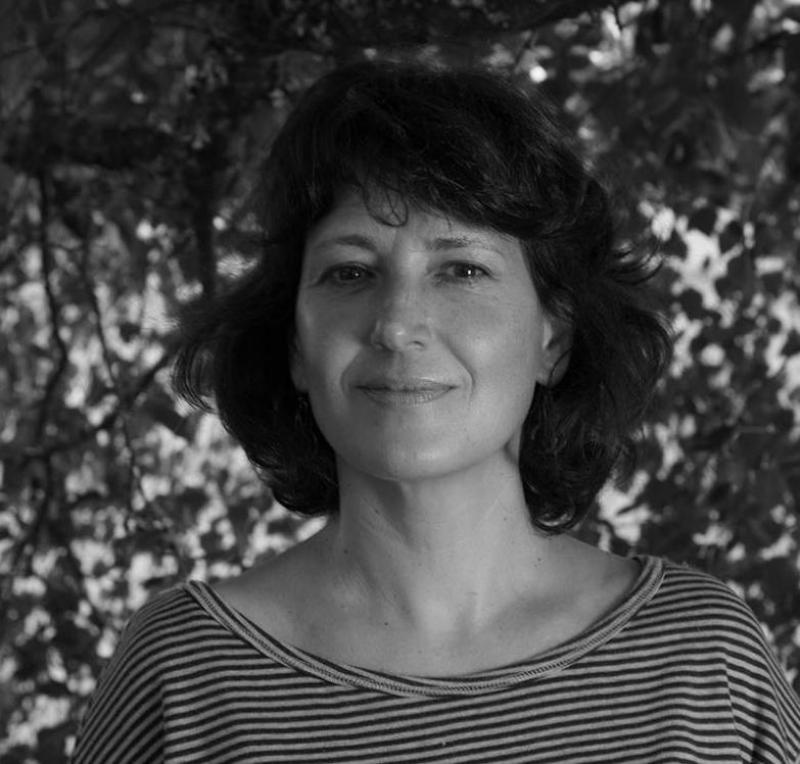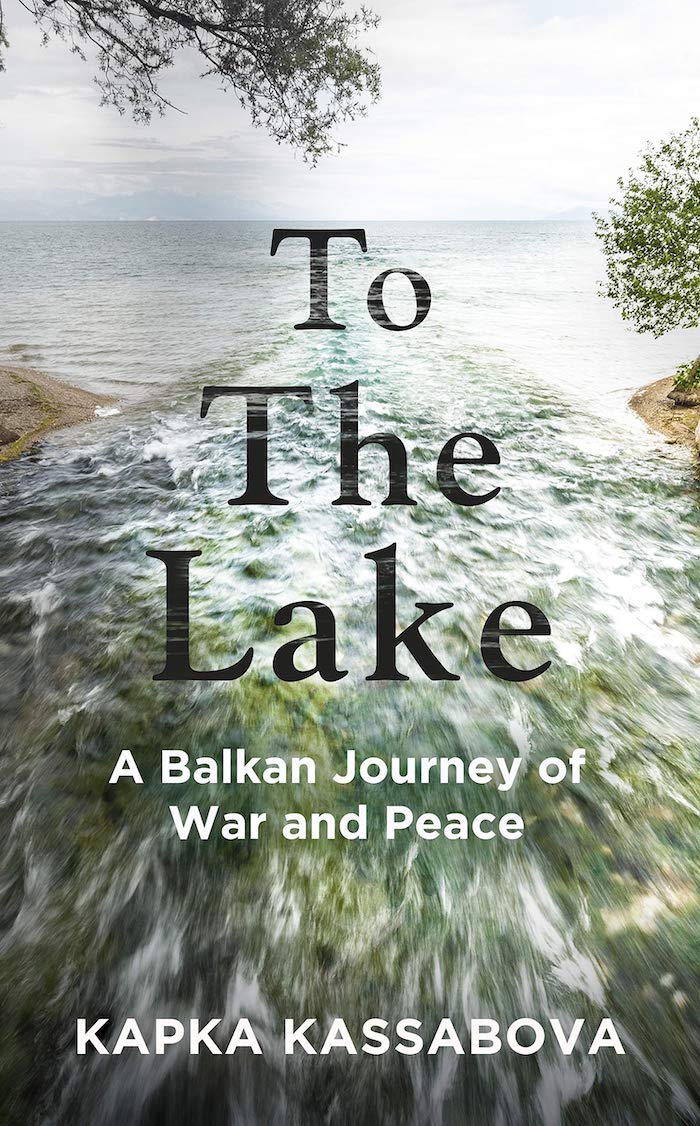Kapka Kassabova: To the Lake review - Macedonia's lacustrine heart | reviews, news & interviews
Kapka Kassabova: To the Lake review - Macedonia's lacustrine heart
Kapka Kassabova: To the Lake review - Macedonia's lacustrine heart
An urgent, rich exploration of one of Eurasia's most complex corners

To the Lake, Kassabova titles this book, but the journey it unfolds tells of not one ancient lake but two: “twins” Ohrid and Prespa, the Lake of Light and the Vale of Snow; these siblings feed each other’s waters through underground streams (the only "subterranean communication system" of its kind in Eurasia).
The singular of Kassabova’s title might points us towards the fact that her narrative is less a travelogue – the prepositional tug towards an endstopped destination – and more a broader investigation into the meanings, memories and politics of this lacustrine geography. Kassabova posits the existence of a “lacustrine element” into whose “generative depths” its people and their descendants are ineluctably pulled and turned. “Each time I went abroad, I’d start dreaming of the Lake”, as Trena, great-granddaughter of the first Ohrid woman to swim openly in the lake in her swimsuit, tells Kassabova. “It’s in my blood. If I had a thousand lives, I’d still choose the Lake.” Many of the lake-dwellers Kassabova meets leave its side, but it’s not long before they give in to the urge to return: “the lake is inside me,” artist-jeweller Marta confides.

Kassabova herself has returned for similar motives. She captions the text with an epigraph from Henry David Thoreau: “A lake … is earth’s eye, looking into which the beholder measures the depth of his own nature.” Seeking to understand her past, she feels the irresistible promise of the lake, its “compelling aura”, led by her hope that, by tracing her own legacy of uprootedness, which follows from her maternal, Ohridian grandmother, she might resolve an inheritance of longing, pain, shifting identity, and loss. She writes of Anastassia: “Somewhere inside her was an abyss that could not be filled. It seemed to have its origin in Macedonia and the Lake. It’s as if she was more than one person, a whole nation of souls, a clamorous hinterland of back-story.” With a poet’s sensitivity, Kassabova meets with and tells the stories of the vividly varied cast of people who inhabit this fraught corner between North Macedonia, Albania and Greece, mining their conversations to explore the experience of “identity as tyranny”. Today, the town of Ohrid lies in North Macedonia, but throughout its history it has been claimed by the Byzantines, the Serbs, the Bulgarians, the Greeks and the Ottomans; its land its “tattooed” with the memories of conflict imposed by warring nationalisms and authoritarian ideologies.
In the midst of this unsteady syncretism, the otherworldly lakes represent something complete and redemptive. “The lake was open, boundless. It was impossible to tell where each of the three countries began or ended, or why for pity’s sake it had been necessary to partition one lake into three nationalities…” Where the Balkans are so frequently made an archetype of easy fragmentation (Kassabova reminds us that the verb “Balkanize”, coined in 1918, means “‘to divide a region or body into smaller, mutually hostile states or groups”’), the lakes create “an exhilaration of wholeness” despite the best attempts of each nation’s maps, none of them including “the lake territory next door”.
The compelling blend of memoir, history and travelogue into which these ideas are turned is a poignant, powerful argument to overcome our obsession with difference. The book’s architecture seamlessly weaves its multiple perspectives, gathered from distant family members, monks, fishermen, widows, outsiders and survivors (notably, Bashir Arapi, one of sixteen people to escape Hoxha’s Albanian dictatorship by crossing the lake in a boat assembled from a bag and made without nails in a basement). Together, they form a haunting and elegant whole with a vehement message at its core: “Lake and mountain were one. The world, when left alone, was one.”
- To the Lake: A Balkan Journey of War and Peace by Kapka Kassabova (Granta, £14.99)
- Read more book reviews on theartsdesk
The future of Arts Journalism
You can stop theartsdesk.com closing!
We urgently need financing to survive. Our fundraising drive has thus far raised £49,000 but we need to reach £100,000 or we will be forced to close. Please contribute here: https://gofund.me/c3f6033d
And if you can forward this information to anyone who might assist, we’d be grateful.

Subscribe to theartsdesk.com
Thank you for continuing to read our work on theartsdesk.com. For unlimited access to every article in its entirety, including our archive of more than 15,000 pieces, we're asking for £5 per month or £40 per year. We feel it's a very good deal, and hope you do too.
To take a subscription now simply click here.
And if you're looking for that extra gift for a friend or family member, why not treat them to a theartsdesk.com gift subscription?
more Books
 'We are bowled over!' Thank you for your messages of love and support
Much-appreciated words of commendation from readers and the cultural community
'We are bowled over!' Thank you for your messages of love and support
Much-appreciated words of commendation from readers and the cultural community
 Elizabeth Alker: Everything We Do is Music review - Prokofiev goes pop
A compelling journey into a surprising musical kinship
Elizabeth Alker: Everything We Do is Music review - Prokofiev goes pop
A compelling journey into a surprising musical kinship
 Natalia Ginzburg: The City and the House review - a dying art
Dick Davis renders this analogue love-letter in polyphonic English
Natalia Ginzburg: The City and the House review - a dying art
Dick Davis renders this analogue love-letter in polyphonic English
 Tom Raworth: Cancer review - truthfulness
A 'lost' book reconfirms Raworth’s legacy as one of the great lyric poets
Tom Raworth: Cancer review - truthfulness
A 'lost' book reconfirms Raworth’s legacy as one of the great lyric poets
 Ian Leslie: John and Paul - A Love Story in Songs review - help!
Ian Leslie loses himself in amateur psychology, and fatally misreads The Beatles
Ian Leslie: John and Paul - A Love Story in Songs review - help!
Ian Leslie loses himself in amateur psychology, and fatally misreads The Beatles
 Samuel Arbesman: The Magic of Code review - the spark ages
A wide-eyed take on our digital world can’t quite dispel the dangers
Samuel Arbesman: The Magic of Code review - the spark ages
A wide-eyed take on our digital world can’t quite dispel the dangers
 Zsuzsanna Gahse: Mountainish review - seeking refuge
Notes on danger and dialogue in the shadow of the Swiss Alps
Zsuzsanna Gahse: Mountainish review - seeking refuge
Notes on danger and dialogue in the shadow of the Swiss Alps
 Patrick McGilligan: Woody Allen - A Travesty of a Mockery of a Sham review - New York stories
Fair-minded Woody Allen biography covers all bases
Patrick McGilligan: Woody Allen - A Travesty of a Mockery of a Sham review - New York stories
Fair-minded Woody Allen biography covers all bases
 Howard Amos: Russia Starts Here review - East meets West, via the Pskov region
A journalist looks beyond borders in this searching account of the Russian mind
Howard Amos: Russia Starts Here review - East meets West, via the Pskov region
A journalist looks beyond borders in this searching account of the Russian mind
 Henry Gee: The Decline and Fall of the Human Empire - Why Our Species is on the Edge of Extinction review - survival instincts
A science writer looks to the stars for a way to dodge our impending doom
Henry Gee: The Decline and Fall of the Human Empire - Why Our Species is on the Edge of Extinction review - survival instincts
A science writer looks to the stars for a way to dodge our impending doom
 Jonathan Buckley: One Boat review - a shore thing
Buckley’s 13th novel is a powerful reflection on intimacy and grief
Jonathan Buckley: One Boat review - a shore thing
Buckley’s 13th novel is a powerful reflection on intimacy and grief
 Help to give theartsdesk a future!
Support our GoFundMe appeal
Help to give theartsdesk a future!
Support our GoFundMe appeal

Add comment